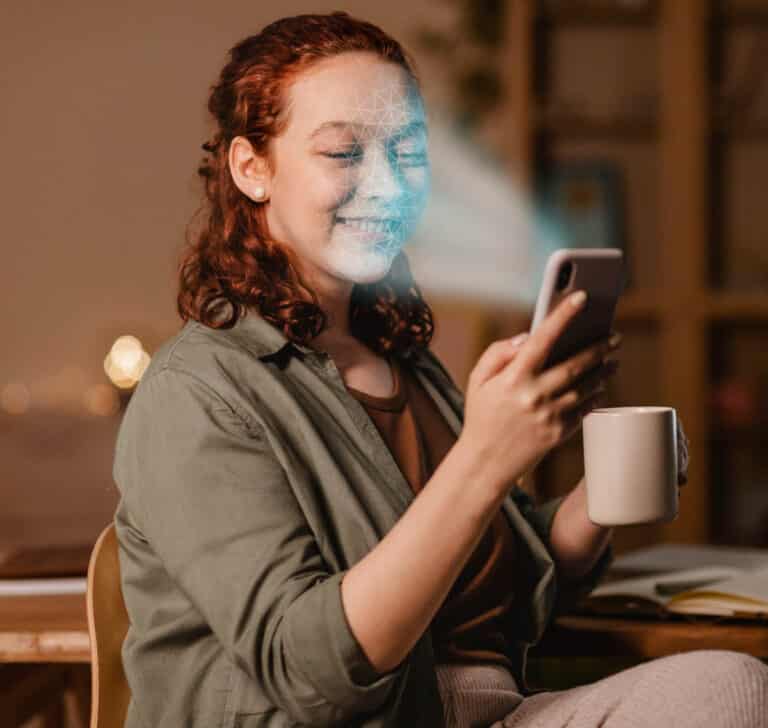In recent years, Artificial Intelligence (AI) has made giant leaps in how it helps us live, work, and even care for our emotional well-being. You might’ve heard about people using tools like ChatGPT to talk through their feelings or get answers to mental health questions. In fact, a recent report suggests that nearly 1 in 5 adults in the U.S. have tried AI tools like ChatGPT to explore mental health solutions, emotional concerns, ask questions about mental health, or find coping strategies.
In the age of artificial intelligence, more and more people are turning to tools like ChatGPT and other AI chatbots to talk about mental health. If you’re one of them—or you’re thinking about trying it—you’re not alone. AI can be helpful in certain ways, especially if you’re curious, short on time, or unsure where to begin. But it’s also important to understand where AI’s role ends and where the value of a licensed mental health professional begins.
It’s no surprise that AI is available 24/7, doesn’t judge, and offers quick responses. But before you dive into AI as a tool for your mental health, it’s important to understand both what it can offer and where its limits lie.
What Can AI Help With?
AI can be a helpful starting point, and it has become a popular tool for exploring mental health because it is available at all times, there is no wait time, it is nonjudgmental, information-rich, and private. AI can easily help you with the following at any given time:
- Getting clarity on what you’re feeling. You can describe what’s going on and get language that helps you make sense of it.
- Learning basic coping strategies. AI can offer general advice or basic skills for managing stress, anxiety, or a low mood. This feature of AI should not be confused with mental health treatment, which is complex in processing, self-exploration, and encompasses many different directions of the human experience.
- Understanding common symptoms. Tools like ChatGPT can summarize mental health topics in simple and understandable terms. It can even provide quick information about a diagnosis.
- Finding motivation or structure. Some people use AI to brainstorm self-care ideas, set daily goals, or talk through problems privately. AI can inform you, but it may not be the most helpful tool to use when you are in need of treatment for your mental health. When you are in need of changing maladaptive behavior, developing self-awareness, intrapersonal details, and deep processing, AI is not the way to go. Let’s explore what AI cannot do for your mental health.

What AI Can’t Do
Even though AI feels like a conversation, it’s not the same as talking to a licensed mental health professional. Here’s what AI can’t replace:
- A full understanding of you. AI doesn’t know your life story, values, trauma history, or what it’s like to be you. It can’t read between the lines or recognize subtle emotional cues the way a human therapist can.
- Personalized diagnosis or treatment. AI doesn’t know your history, your context, or your unique struggles. It can’t give you a diagnosis or develop a treatment plan tailored to you.
- Personalized care. Mental health is deeply personal. While AI can offer general advice, it can’t adapt strategies to your specific needs or tailor a treatment plan over time.
- Clinical judgment. A mental health professional can identify underlying issues, spot red flags, and distinguish between similar-looking concerns (like anxiety vs. ADHD). AI cannot diagnose or safely guide you through those nuances.
- Accountability and growth. Therapy involves more than just conversation—it’s a collaborative process. Your therapist remembers your progress, offers feedback, and helps you make lasting change.
- Emotional connection and safety. Therapy is about more than just information. A therapist provides empathy, accountability, and support in a way that AI simply can’t.
- Crisis support. AI is not equipped to handle mental health emergencies. If you’re in crisis, you need immediate help from a trained professional or a crisis hotline.

What AI Can’t Do
AI can be a good starting point, but it’s not a substitute for real human care. If you’re dealing with anxiety, depression, trauma, relationship issues, or anything that impacts your daily life, working with a licensed therapist can make a real difference. A mental health professional offers a safe, confidential space to explore what’s going on, tools and interventions grounded in research, and a therapeutic relationship that fosters growth and healing. Mental health professionals bring experience, training, and a human presence that no chatbot can replicate. Here’s what makes working with a therapist so different—and so effective:
- Real Relationship. Therapy is built on connection. A therapist listens, responds, and engages with you in a meaningful way. They offer empathy, attunement, and insight—things that go beyond words and into the realm of feeling safe and seen.
- Clinical Expertise. Therapists are trained to recognize patterns, uncover root causes, and work with complex emotional and psychological processes. Whether you’re dealing with trauma, depression, anxiety, grief, or family issues, a licensed professional brings tools backed by science and experience.
- Ethical Standards and Confidentiality. Licensed professionals are held to ethical and legal standards that protect your safety and privacy. You can trust that your sessions are confidential and that your therapist has been trained to handle sensitive situations responsibly.
- Treatment That Evolves With You. AI provides static responses based on patterns in language. A therapist, on the other hand, adapts to your needs as they change over time. They reflect on what’s working, adjust strategies, and walk with you through the ups and downs of healing.
- The Power of Presence. Sometimes, what heals us isn’t advice or answers—it’s having someone truly present with us in our pain. A mental health professional can offer that presence in a way that a machine simply can’t.

If You’re Ready for Real Support, We’re Here
At Therapy Treatment Team, we understand the desire to feel better and the courage it takes to seek support. Whether you’ve been using AI tools or are just getting started on your mental health journey, our team is here to help you go deeper, feel better, and move forward. And the good news is, therapy is more accessible than ever, whether in person or via telehealth. If you’re curious about AI, go ahead and explore—but think of it like a self-help book or a mental health podcast: useful, but not a replacement for professional care.
The bottom line is that there’s no harm in using AI as part of your mental wellness toolkit. Many people find value in using it to journal, reflect, or learn. But don’t stop there. If you’re struggling with persistent sadness, anxiety, trauma, or anything that affects your day-to-day life, it’s time to reach out to a real person who can help.

Dr. Yaro Garcia
Hello, I am Dr. Garcia, please call me Yaro. My degrees are in clinical psychology and I am a licensed mental health counselor. My approach is caring, warm, safe, non-judgmental, and straight forward. It is a difficult decision to seek therapy, I take time to build a trusting therapeutic relationship with you…
















